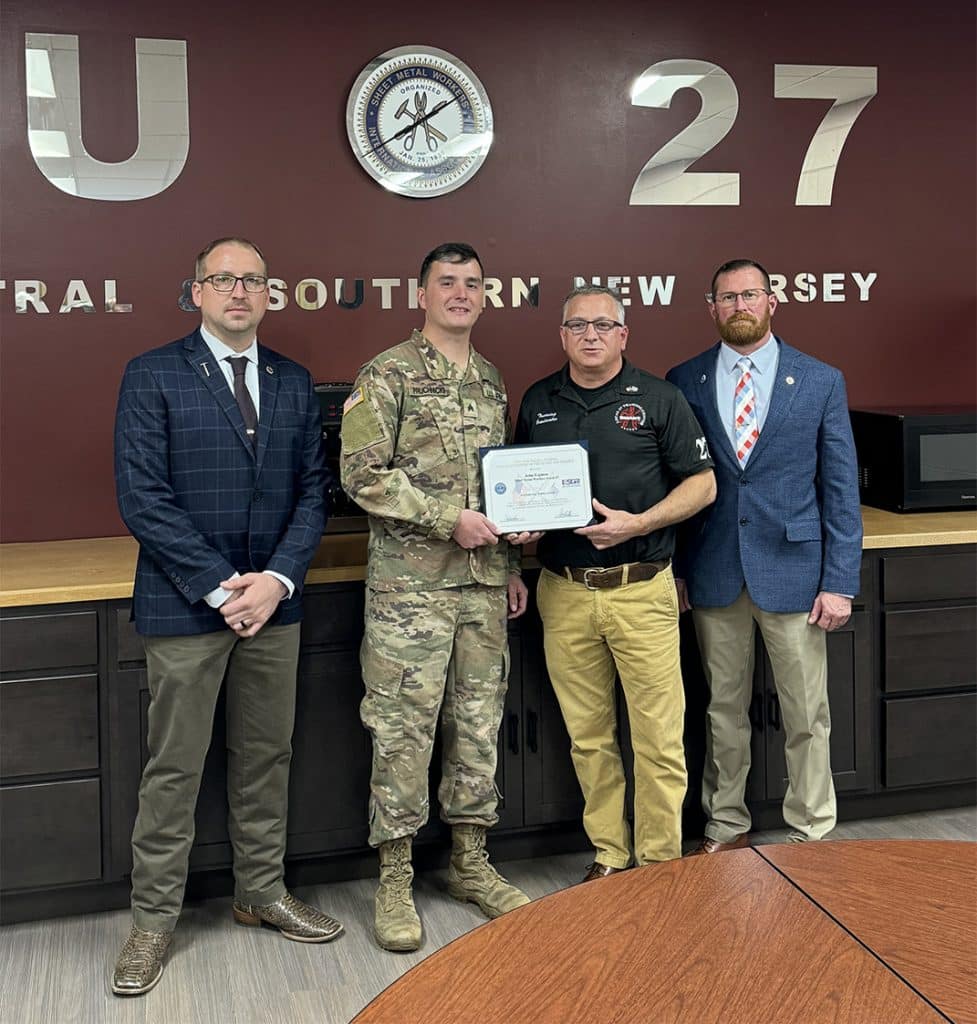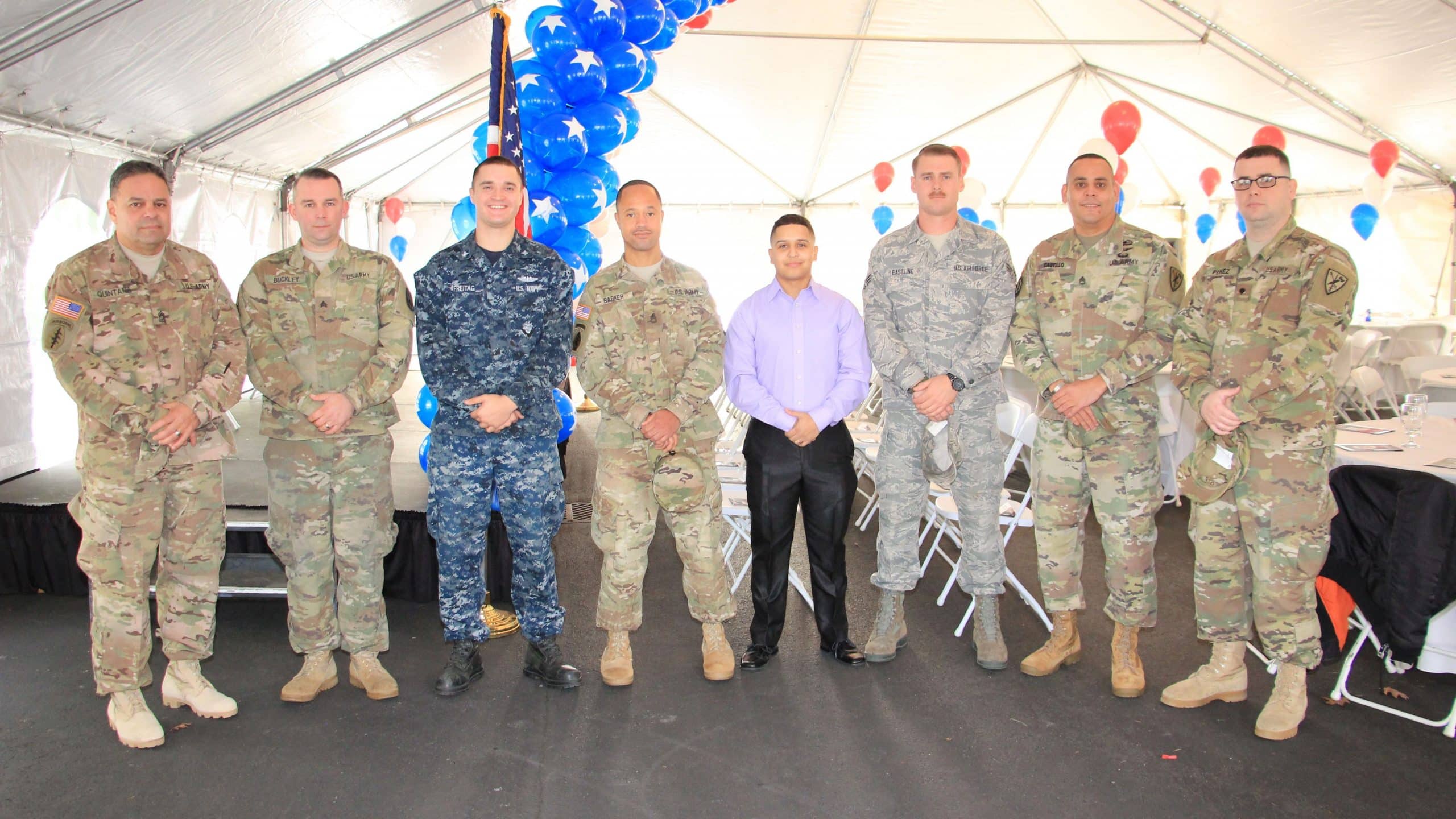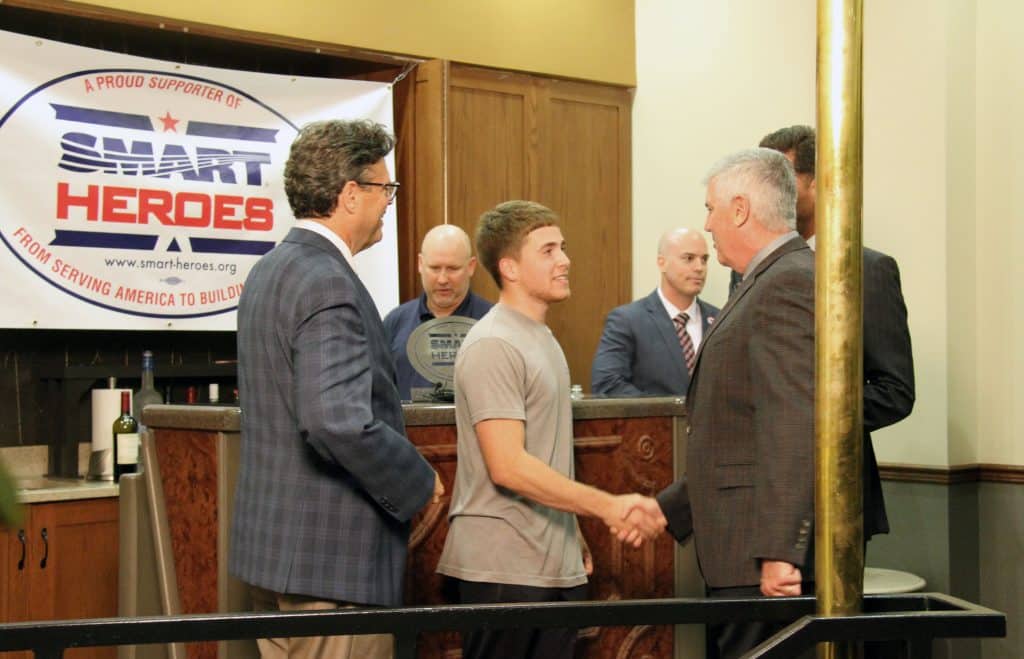The SMART Heroes Foundation honored sponsors and recognized recent program graduates during an appreciation reception Nov. 18 in Washington, DC. DeWalt was recognized as a gold sponsor, and it was announced the company would become a program partner for next year.
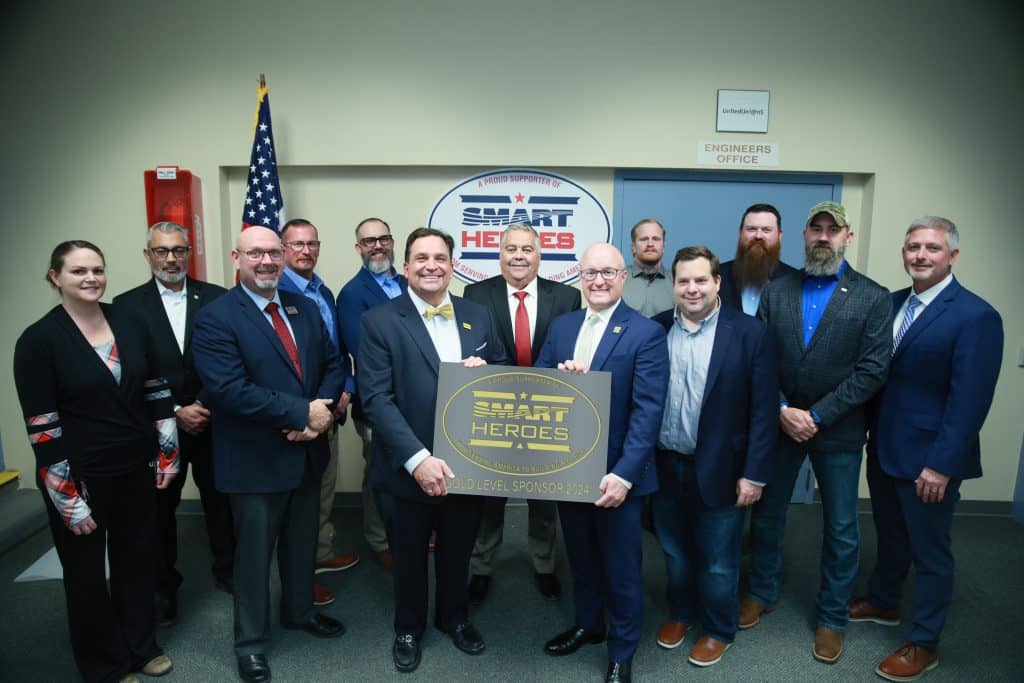
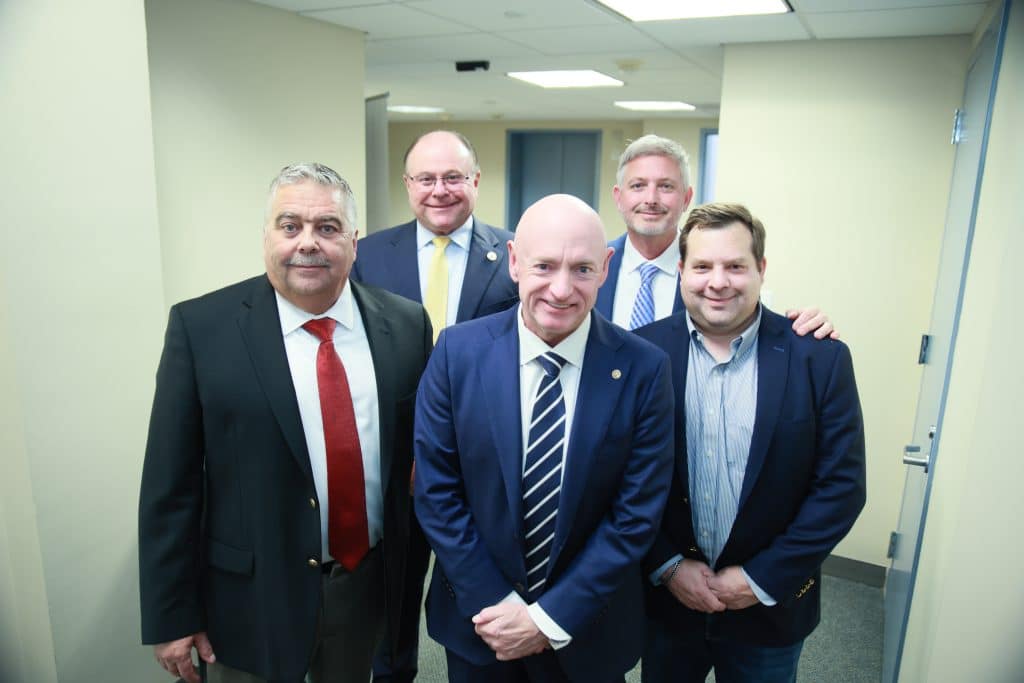
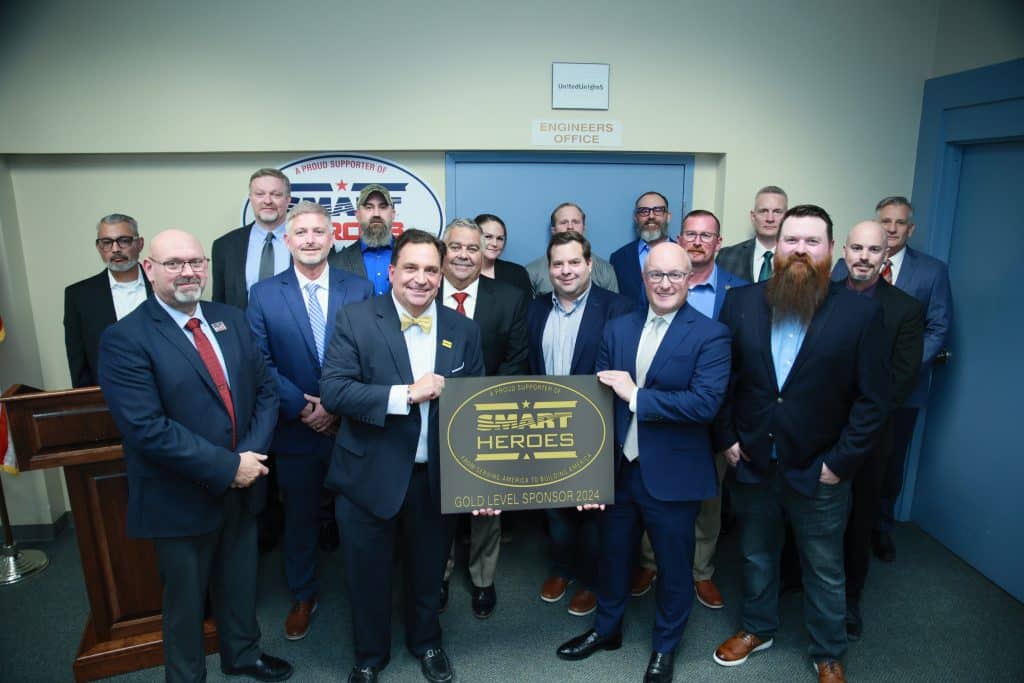
Jon Howland, DeWalt director of trade marketing, said the company’s participation in SMART Heroes is intended to help grow the trades by bringing in more women, people from underserved communities and veterans. A Navy veteran, Howland also promised if SMART Heroes was to open a third location, DeWalt would fill it with products and tools.
“Continue to fund these programs,” he urged. “They’re so important.”
SMART Heroes began in 2017 in Western Washington to provide exiting military members and recent veterans the opportunity to complete a concentrated version of their first year of sheet metal apprenticeship as the beginning to a civilian career. The second location in Colorado Springs began offering the same training in 2019. Both locations work with local military bases of all branches to aid in a successful transition into the civilian workforce.
In order to graduate, SMART Heroes participants complete a seven-week course, and upon discharge from service, they may choose to enter any of the 148 SMART apprenticeship programs in the United States. There, they are provided direct entry and advanced placement as a second-year sheet metal apprentice with corresponding wages and benefits.
The SMART Heroes program has graduated more than 600 graduates, with approximately 60% currently working in the trade and an additional 5% eligible to apply for the apprenticeship upon discharge. Two graduates — Kurtis Mancuso from SMART Local 9 in Colorado Springs and Kevin Moore from Local 66 in Western Washington — were in attendance at the reception with their instructors, Greg Daniels and Tommy Mumma, respectively.
To Moore, the camaraderie of the union is similar to that of the military.
“The veterans need this program,” he added. “All veterans need is that same environment, only without bullets flying at them.”
Mancuso found out he was going to become a father a few months before he was to be discharged from the Army. Panic set in as he wondered how he would provide for his family. Then, SMART Heroes called.
He graduated from the apprenticeship earlier this year.
“SMART Heroes was the only program that kept reaching out to me,” Mancuso said. “I am very, very thankful to the SMART Heroes program. Veterans need that. Without it, some of us don’t do very good.”
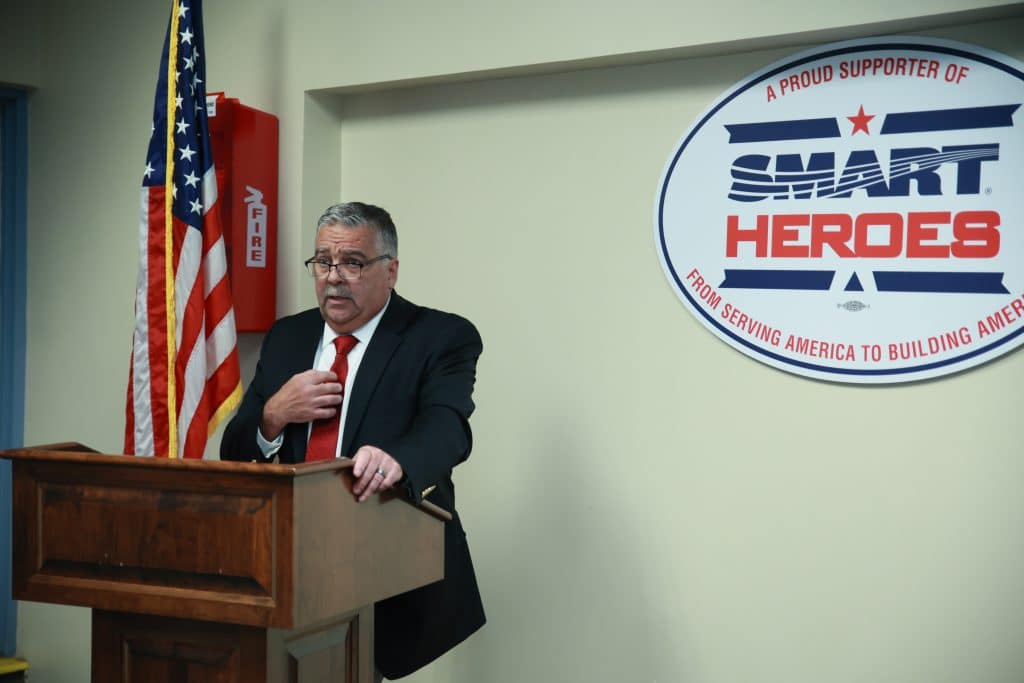
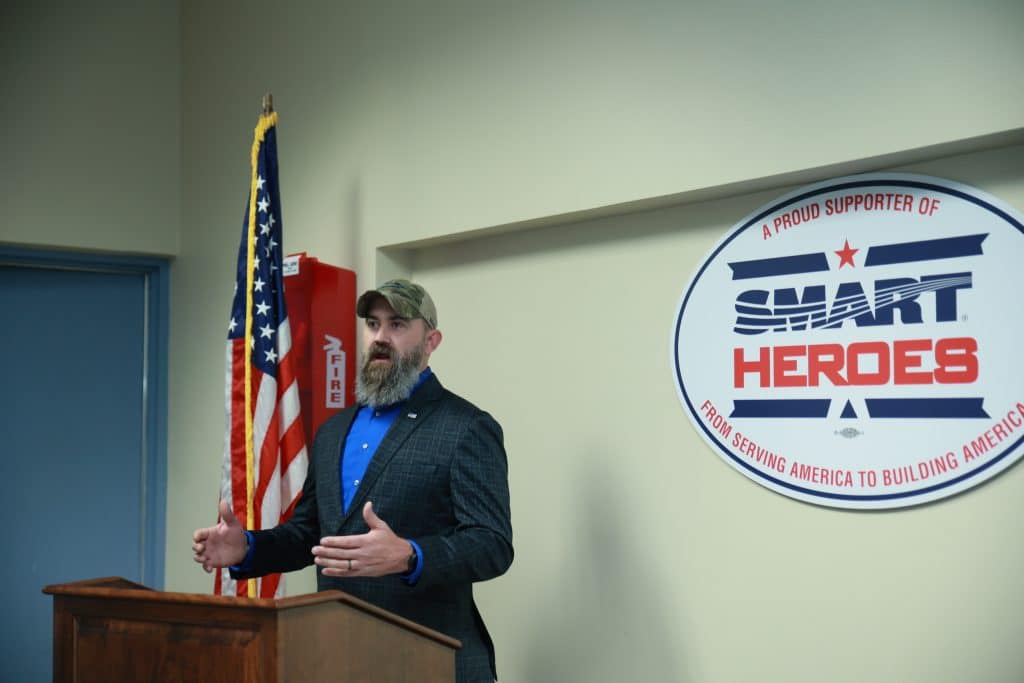
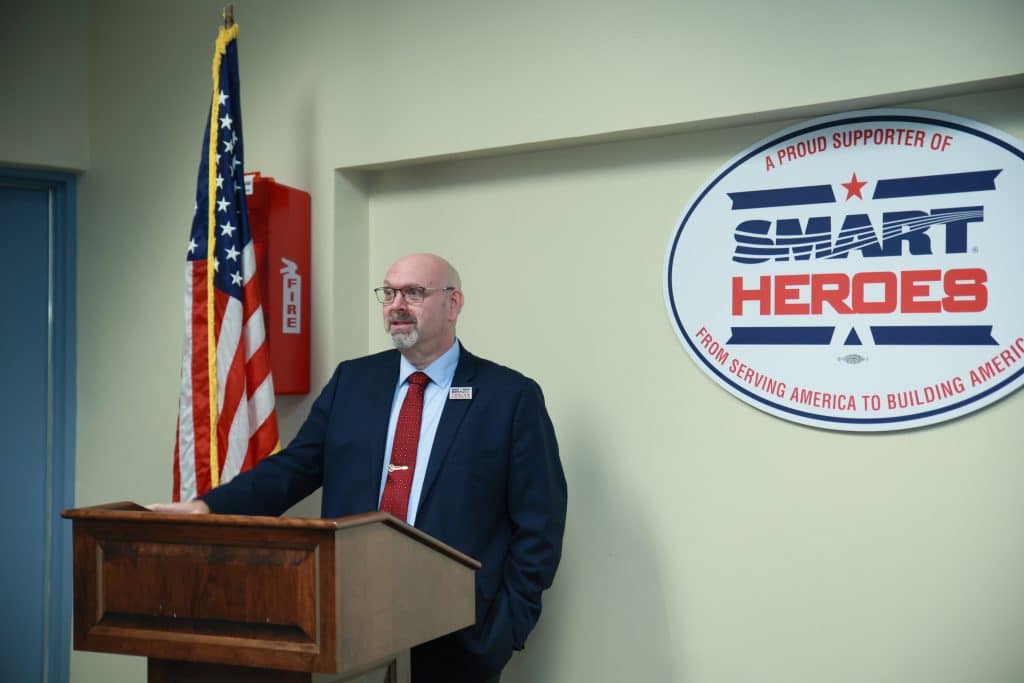
Arizona Sen. Mark Kelly, a retired astronaut and U.S. Navy captain, attended the reception to show his support for the program: “It’s a model that other unions and other companies need to follow,” he said.
Mike Harris, executive director of the ITI, NEMI and SMOHIT, reminded the audience that SMART Heroes cannot continue without support.
“These veterans … this is what this program is all about,” Harris said. “But we can’t do it without the support of our sponsors who help us fund these programs.”
